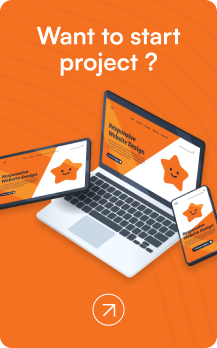The software development arena is undergoing a transformative evolution, propelled by the emergence of no-code and low-code platforms. A substantial shift is in motion as these groundbreaking low-code no-code (LCNC) approaches promise to revolutionize software development, granting individuals with minimal coding expertise the ability to craft functional applications.
Within this blog, we delve into the realm of no-code and low-code, unraveling their merits, and delving into the potential they hold to sculpt the trajectory of future software development. Join us as we explore these innovative methodologies and their impact on shaping the landscape of software creation.
Unlocking the Power of No Code and Low Code:
In the realm of software development, low code and no code (LCNC) signify platforms and tools designed to empower users in crafting applications without delving into extensive coding endeavors. No code platforms, true to their name, eradicate the necessity for coding, allowing users to construct applications through intuitive visual interfaces and ready-made components.
Conversely, low-code platforms strike a balance by presenting a visual development environment. Here, users can fashion applications with minimal coding efforts, often employing drag-and-drop elements and pre-designed functions to streamline the process.
Benefits of No Code and Low Code Paradigms:
The rise of no-code and low-code platforms marks a revolutionary transformation. These inventive approaches empower individuals with diverse technical backgrounds to play a pivotal role in the development and deployment of applications, eliminating the prerequisite for extensive coding expertise.
No-code platforms grant users the ability to construct software solutions using user-friendly graphical interfaces and pre-established components. Meanwhile, low-code platforms strike a harmonious balance, offering visual development alongside customizable coding for handling more intricate functionalities. This shift not only expedites the development timeline but also encourages collaboration between technical and non-technical stakeholders.
The Evolution of LCNC Software Development: A Glimpse into the Future
The software development arena is in the midst of a profound metamorphosis, prominently featuring the ascent of Low-Code/No-Code (LCNC) platforms. The surge of no-code and low-code platforms has ignited conversations about their potential to reshape the landscape of software development.
While these platforms undoubtedly bring transformative advantages, it appears improbable that they will entirely replace conventional coding. Instead, they are poised to coexist, catering to distinct project requirements and diverse development needs.
These platforms have effectively democratized the application creation process, allowing individuals with varying technical backgrounds to actively participate in development. As we peer into the future of LCNC software development, a realm of limitless possibilities unfolds, ushering in an era where innovation transcends boundaries, and the ability to create is democratized for the multitude.
No code and low code platforms serve diverse purposes across various industries and sectors, offering accessibility to both technical and non-technical users in software solution development. Here are several common use cases for these platforms:
- Internal Tools and Automations: Companies streamline operations by creating custom tools and automations without IT department delays.
- Short-Term Solutions: Efficient solutions cater to projects with short life cycles or specific time-sensitive requirements.
- Rapid Prototyping and MVPs: Startups and businesses swiftly test ideas and concepts in the market with prototypes and minimum viable products (MVPs).
- Web and Mobile Applications: Various applications, from e-commerce websites to customer portals, are developed using these platforms.
- Data Dashboards and Analytics: Businesses make informed decisions with data visualization dashboards sourcing insights from various data sources.
- Workflow Automation: Automation of workflows, such as approval processes and notifications, enhances efficiency.
- Content Management Systems (CMS): Users manage content-driven websites and applications effortlessly.
- E-Commerce Platforms: Online stores with shopping carts, payment gateways, and inventory management are quickly set up.
- Custom CRM Systems: Tailored customer relationship management (CRM) systems facilitate client interactions and sales processes.
- IoT Applications: Simple Internet of Things (IoT) applications, like sensor data monitoring, are built without extensive coding.
- Chatbots and Virtual Assistants: Customer support and information dissemination benefit from easy creation of chatbots and virtual assistants.
- Educational Platforms: Interactive learning platforms, quizzes, and courses are developed for educators.
- Event Registration and Management: Systems handle event sign-ups, ticketing, and attendee tracking efficiently.
- Marketplace and Directory Websites: Online platforms connecting buyers and sellers are easily created.
- Healthcare Solutions: Patient data tracking applications and appointment scheduling systems support healthcare professionals.
- Non-Profit and Community Initiatives: Websites, applications, and databases manage volunteers, donations, and outreach efforts for non-profit organizations.
- Proof of Concepts: Developers demonstrate ideas to stakeholders or potential investors with proof-of-concept applications.
- Custom APIs and Integrations: Businesses connect software systems and enable data exchange through custom APIs and integrations.
No code and low code platforms facilitate rapid development and deployment of solutions, fostering innovation and efficiency across various domains.
Top Recent
In our latest blog section, we delve into the most current and impactful trends shaping the industry. Our focus includes exploring key developments, innovations, and updates that are driving change and setting new benchmarks. Whether it’s emerging technologies, evolving best practices, or significant market shifts, we provide insightful analysis to keep you informed.
Have an idea ?
Let Codiot transform your vision into reality with innovative and customized digital solutions tailored to your needs.

Have an idea ?
Let Codiot transform your vision into reality with innovative and customized digital solutions tailored to your needs.

Got a question? Get your answers
Quick answers to questions you may have. Can’t find what you’re looking for? Check out our full documentation.
Low-Code and No-Code development platforms allow users to create applications with minimal or no coding skills. These platforms provide visual development tools and pre-built templates, enabling faster and more accessible application development compared to traditional methods that require extensive coding knowledge and longer development cycles.
The primary advantages include accelerated development timelines, reduced costs, and the empowerment of non-technical users to create applications. These platforms enable rapid prototyping, easier maintenance, and quicker iterations, making it easier for businesses to adapt to changing needs and market demands.
Limitations include potential scalability issues, limited customization options, and dependency on the platform provider. Challenges may arise in integrating with existing systems, ensuring data security, and maintaining control over the application lifecycle. Additionally, while these platforms simplify development, complex projects may still require traditional coding skills.
Codiot harnesses the power of Low-Code and No-Code platforms to deliver quick and efficient solutions tailored to their clients’ needs. By leveraging these platforms, Codiot can reduce development time and costs while ensuring high-quality, scalable applications. Their expertise in these technologies enables businesses to rapidly innovate and respond to market changes, providing a competitive edge.



